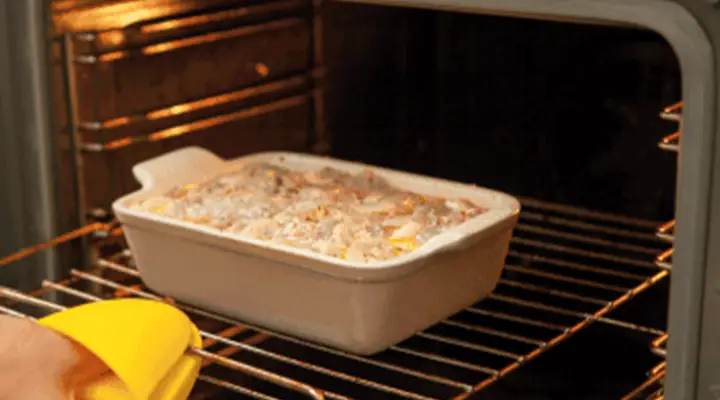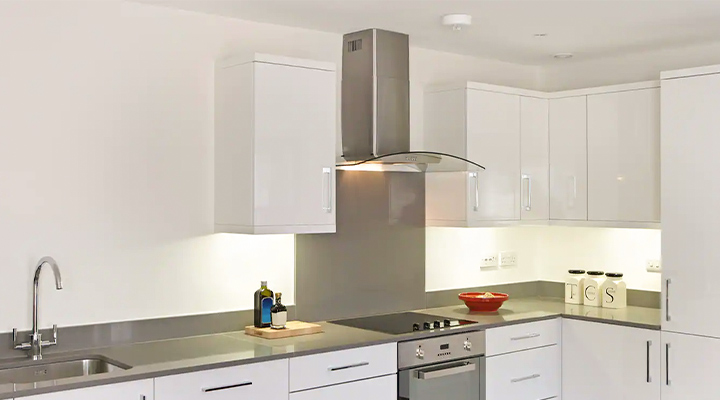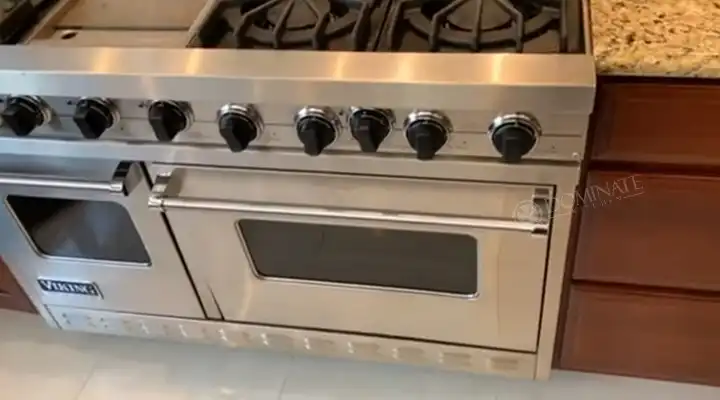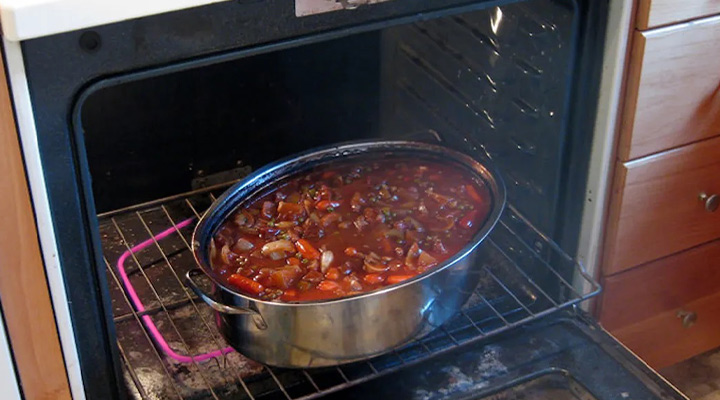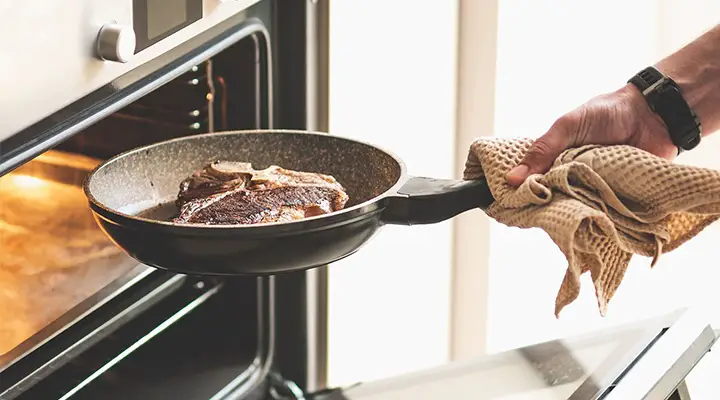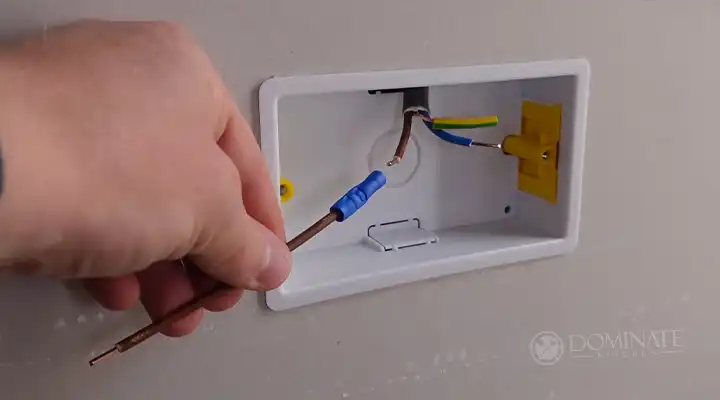How Much Electricity Does An Oven Use Per Hour (With Example)
Many people are interested in knowing the energy consumption of an oven before purchasing one. Almost all electric ranges come with a thermostat that is specifically designed for their type of oven. This can make it more challenging to determine how much electricity an oven uses per hour. So, what is a good estimate for your own oven? That’s the question we’re going to answer with this article!
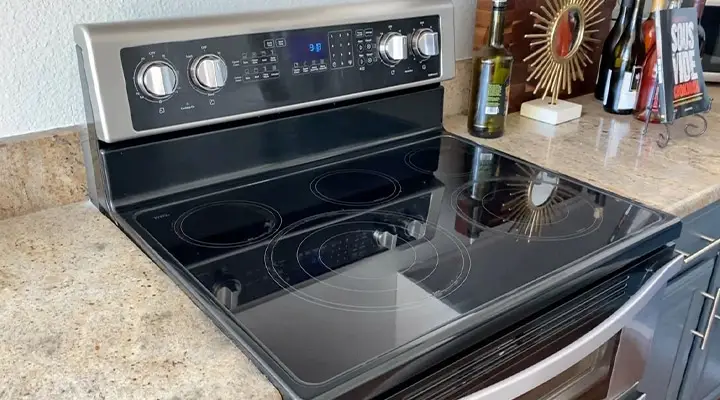
How Much Electricity Does The Oven Use Per Hour?
The amount of electricity an oven uses per hour will vary depending on the type of appliance and the model you have. Usually, a toaster oven uses about 15 kilowatts per hour, while a microwave uses about 4 kilowatts. Besides, a coffee maker utilizes around 10 kilowatts, and an electric kettle is just around 1 kilowatt per hour.
Actually, the amount of electricity a typical oven uses per hour also depends on how many minutes it takes to heat up. For example, an electric stovetop will use more electricity in the short term than an electric oven. Besides, an electric stovetop can take longer than an electric oven when heating food because there is no fan inside to circulate warm air around the food.
From the above estimates, we can say that an average electric oven consumes about 10 kilowatt-hours (kWh) of electricity. If you use your oven on a regular basis, the average electricity consumption of your home can be about 5,000 kWh to 6,000 kWh per year.
How Much Does It Cost To Run An Electric Oven?
The operating cost of an electric range typically ranges from $200 to $500 per year. Each time you use your range’s controls, you are actually using power, even if you aren’t cooking anything at that moment. The more frequently you use your range, the more expensive it is to operate.
The most energy-efficient type of electric oven uses about 900 kilowatt-hours (kWh) per year, which is equivalent to about $60 in electricity costs per year. And, this amount is a small fraction of the average household’s energy use. Ovens that use more energy than this typically have higher prices and must be used for larger numbers of foods. These ovens may be able to heat up larger amounts of food but also require more time to cook each item than smaller ones do.
How Much Electricity Does An Oven Use At 350 Degrees?
The average amount of electricity an oven uses at 350 degrees Fahrenheit is about 14 kilowatt-hours (kWh). Since the average U.S. household uses 10,000 kWh yearly, this energy is significant.
Not to mention, the electricity usage is affected by cooking times. And, cooking times vary depending on the type of food being cooked and whether you want it to be done quickly or slowly. A roasted chicken may only require 30 minutes at 350 degrees Fahrenheit, while cookies may take longer than an hour at this temperature.
Do Higher Oven Temperatures Consume More Electricity?
Yes, it is true. The higher the temperature, the more energy is required. But this can be offset by using less energy overall and, in some cases, even using less energy per unit of food.
Here are some of the main reasons why higher temperatures can consume more electricity:
- Higher temperatures mean more heat energy is being transferred into the food. This requires additional power to run your oven and any other appliances such as a microwave or dishwasher that are connected to electricity. So, you need to adjust your cooking times accordingly.
- The higher temperature makes it harder for some foods to be cooked evenly or at high enough speeds (for example, roasting). You may need to reduce the number of minutes you cook when cooking certain foods at low temperatures or increase their cooking time at higher temperatures.
Which Uses More Electricity, A Slow Cooker Or An Oven?
The answer to this question depends on how you define “slow cooker.” If you’re talking about a slow cooker that is plugged in, the answer is obvious: an oven. However, the answer might be different when you are talking about a slow cooker that uses electricity from your home’s power grid.
In most cases, slow cookers heat food from the bottom up. That’s why it takes longer to heat up the food. The same is true for baking. So, an oven can be your best bet if you’re looking for a quick way to prepare meals. An oven heats food from the top down, so it takes less time to heat up. Still, an oven consumes more electricity within a short time.
Does Electric Oven Volume Affect Electricity Usage?
Yes, electric oven volume affects electricity usage. The higher the heat generated by an electric oven, the more electricity used in its operation. So with a larger electric range, you will need to pay more for electricity because it uses more power and generates more heat.
If you use a large oven, you must turn it on frequently to heat up and cool down your food. This can be very wasteful. However, the larger the oven volume, the greater the amount of food that can be cooked at a time and thus, lesser electricity use.
Frequently Asked Questions
What Cooking Appliance Uses The Least Electricity?
According to the U.S. Department of Energy, a microwave oven uses the least electricity of all range appliances. Other common appliances that use relatively little energy include electric and gas ranges, clothes dryers, and dishwashers. Because of being such an efficient kitchen appliance, microwaves are a good choice for most people.
Microwave or Oven: Which is More Cost-effective?
Cooking with a microwave oven will cost you less than cooking in your oven, but you should consider your options before deciding. Microwaves usually can’t be used for baking or roasting in the traditional sense because they don’t heat things evenly enough. If you’re using a microwave for cooking eggs or other food items that need to be kept moist, you may have to cook them longer than cooking in an oven.
Final Thoughts
We can conclude that the oven uses up a considerable amount of energy each hour, so budgeting the energy you use per day is essential. In general, one-third or less of your oven’s power will actually be used to cook your meals, as the intense heat is only needed for a very short time.

